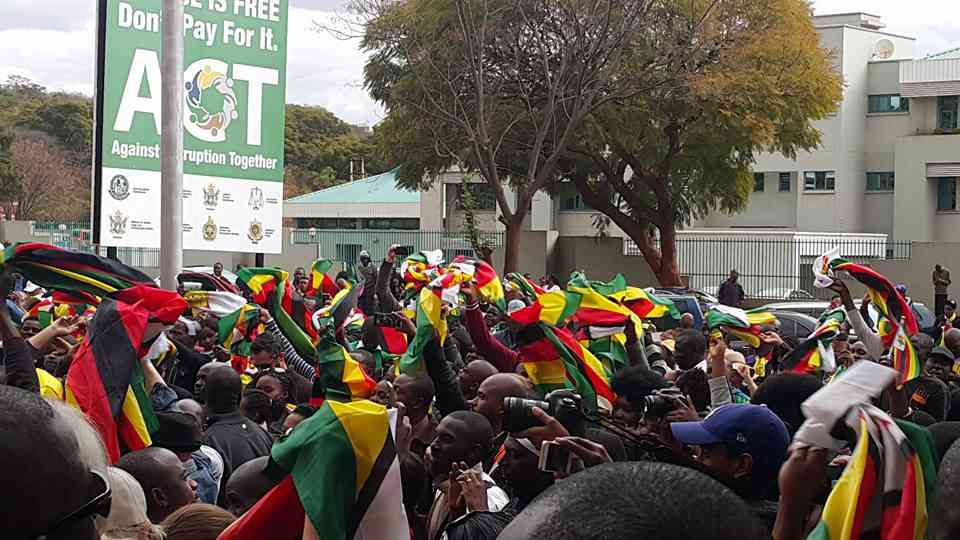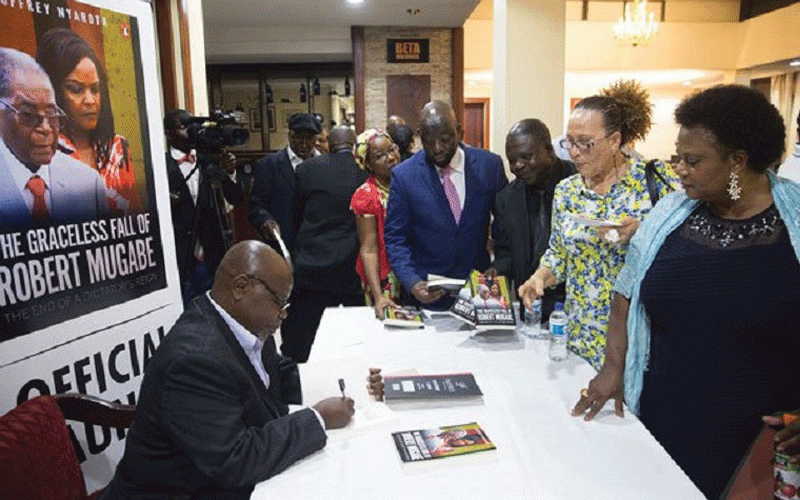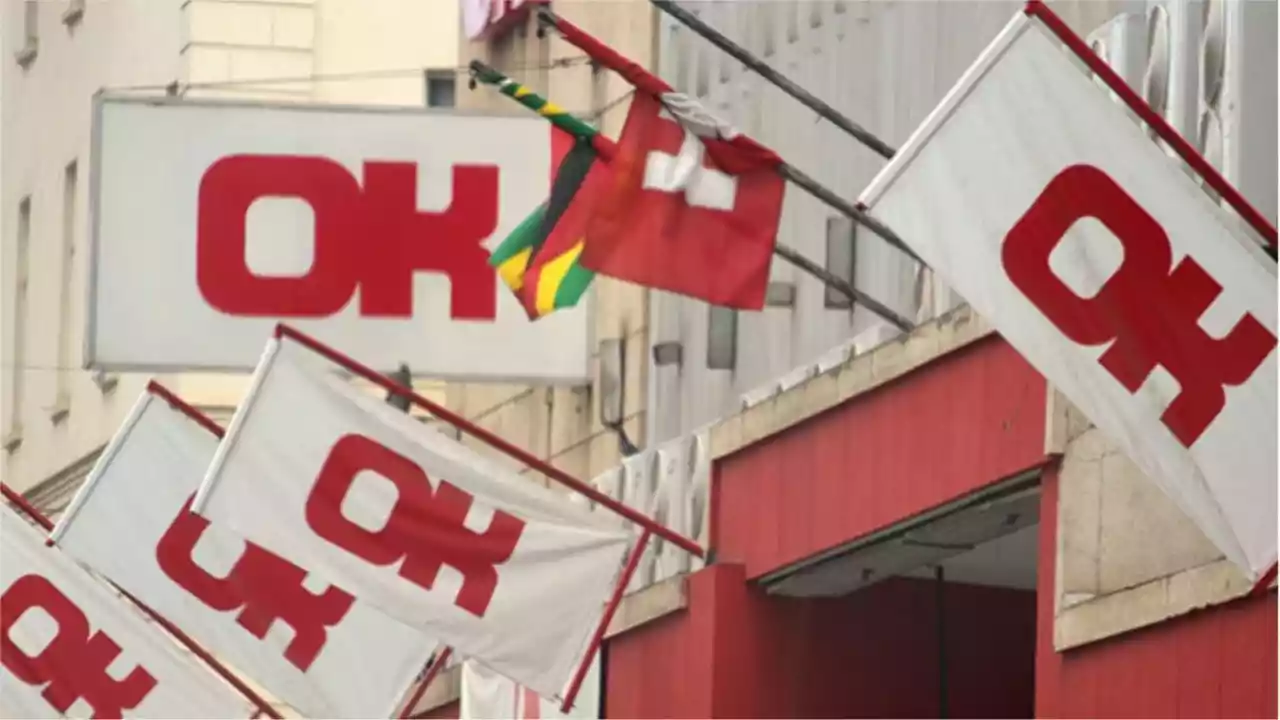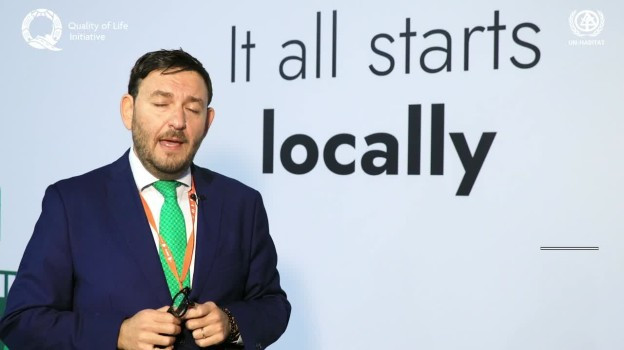
WHAT future awaits a nation that silences its youth, the very lifeblood of its progress?
In recent months, Africa has witnessed a surge of protests led by its vibrant young people, from Kenya to Uganda and most recently in Nigeria.
These demonstrations have not only been a testament to the enduring spirit of Africa’s youth but also a stark reminder of the unyielding quest for justice and democracy. The subject of protests, therefore, emerges as both timely and profoundly relevant, especially in the context of Zimbabwe.
As the Southern African Development Community (Sadc) prepares to convene in Harare on August 17, the Zimbabwean state has already postured towards violence, repression, and the blatant undermining of constitutional values.
The government's heavy-handed approach to public security has transformed from a measure of protection into a tool of oppression, grossly violating constitutional norms and democratic principles. This moment calls for critical reflection on the implications of such actions, not just for Zimbabwe, but for the entire region.
Sub-Saharan African Arab Spring?
In a thought-provoking article, Al Jazeera columnist Tafi Mhaka has posed a compelling question: Are we witnessing the dawn of a “Sub-Saharan Africa Arab Spring”?
Mhaka’s analysis underscores a rising wave of disillusionment among young people across the region, who are increasingly fed up with inefficient and oppressive governments.
- Barca’s shock loss puts Real on verge of title
- ‘Thank you for supporting Chedenga Foundation’
- Essentials’ anthology on the cards
- The story of Cyclone Idai revisited
Keep Reading
This growing unrest sheds light on the underlying conditions fuelling the surge in protests, pointing to widespread frustration with systemic failures and a lack of accountability.
Mhaka’s insights prompt us to consider why protests are gaining traction, suggesting that they are not merely isolated incidents but part of a broader, intensifying movement against entrenched political injustices.
In Zimbabwe, the economic and social landscape has deteriorated significantly, with inflation recent years surging to an alarming rate of approximately over 500%.
These staggering figures reflect the deepening crisis driven by a series of ineffective economic policies and corrupt practices. Amidst soaring prices and dwindling resources, ordinary Zimbabweans are grappling with severe material hardships, unsustainable living conditions, with the cost of basic goods like bread, sugar, and mealie meal skyrocketing, placing an unbearable strain on household budgets, highlighting the urgent need for systemic change.
Yet, instead of addressing these pressing issues, the Zimbabwean government continues to stifle dissent and suppress its citizens’ constitutional rights.
Legal frameworks
In Zimbabwe, the right to protest is enshrined in Section 59 of the Constitution, which promises citizens the freedom to demonstrate and petition peacefully.
However, this fundamental right is undermined by the Maintenance of Peace and Order Act (Mopa), which replaced the widely criticised Public Order and Security Act (Posa).
Despite claims of reform, Mopa retains many repressive features. The law requires public protest organisers to seek prior authorisation from the police, effectively allowing authorities to impose restrictive conditions or even outright ban demonstrations.
This power turns the constitutional right to protest into a conditional privilege, vulnerable to the whims of state control.
The situation is further exacerbated by the Criminal Law (Codification and Reform) Act, which complements MOPA by criminalising actions associated with public dissent. This legislation broadens the scope for prosecuting protesters under charges such as incitement to violence and public disorder, often used to stifle legitimate expressions of discontent.
Together, these laws form a legal framework that severely restricts public participation and dissent, undermining the very democratic principles they are supposed to protect.
The 43rd Sadc Summit
As the Sadc meets under the theme Promoting Innovation to Unlock Opportunities for Sustained Economic Growth and Development Towards an Industrialszed Sadc, a glaring contradiction emerges.
The Zimbabwean government, host of the summit, is cracking down on the very protests that have often been the only platform for its young people to make their voices heard. This heavy-handed repression starkly opposes the summit's theme, which emphasises innovation and growth.
How can the region hope to achieve sustained economic development when the ideas and grievances of its most passionate citizens are suppressed?
Zimbabwe's posture not only undermines the spirit of the Sadc’s goals but also sends a troubling message to its regional partners.
Instead of fostering a climate where new ideas and youthful energy can driveprogress, the government’s actions threaten to stifle the creativity and dynamism essential for true industrialisation and development.
This hypocrisy calls into question the genuine commitment to the loftyideals being championed at the summit.The brutal crackdown on the January 2019 protests, where at least eight lives were tragically cut short by the armed forces' heavy-handed tactics against demonstrators opposing a staggering 150% increase in fuel prices, serves as a stark and chilling reminder of Zimbabwe's deep- seated intolerance for dissent.
As the Sadc summit approaches, this legacy of violence and suppression is ominously reaffirmed.
The Home Affairs minister has brazenly declared that the government will not apologise for its repression of any protests surrounding the event, underscoring a disturbing commitment to quashing public dissent. This stance is not just alarming; it is a clear signal to Zimbabwe's regional partners and the international community that the government prioritises control over constitutional rights.
What message does this send to the rest of Sadc?
To the continent?
Already, the state has arrested and detained 18 human rights activists on charges, such as "disorderly conduct" and "gathering with intent to promote violence."
These arrests raise critical questions: How long can a society endure under the weight of such oppression?
The implications of Zimbabwe’s actions extend beyond its borders.
They cast a long, dark shadow over the entire Sadc region and beyond, challenging the commitment of neighbouring countries to uphold human rights and democratic values. Will the regional leaders at the Sadc summit stand in silent complicity, or will they address the egregious violations occurring within their midst?
This moment demands introspection and action from Zimbabwe’s regional partners.
The eyes of the continent and the world are watching. How will they respond to a government that so blatantly undermines the very freedoms it is sworn to protect?
Unshackling Zimbabwe
In the shadows of Zimbabwe's restrictive legal landscape, the vibrant voices of its youth are stifled, their calls for change muted by an oppressive legal framework.
As the Sadc summit approaches, the irony is glaring: a nation brimming with potential stands on the cusp of progress while suppressing the very voices that could drive it forward.
The government's crackdown on dissent is not just an affront to constitutional rights but a profound disservice to the promise of innovation and growth. The region and the world are watching. Will Zimbabwe's future be defined by its capacity to embrace change and empower its people, or will it remain shackled by laws that fear dissent more than they value progress?
The answer lies not only in the summit's rhetoric but in granting tangible freedoms to those who dare to speak and act for a better tomorrow. Improving the legislative framework is imperative to ensure the youth's voices are heard and protected, fostering an environment where innovation and growth can flourish unhindered.
- Moyo is a master of laws student at the University of Cape Town — [email protected]. These weekly New Perspectives articles, published in the Zimbabwe Independent, are coordinated by Lovemore Kadenge, an independent consultant, managing consultant of Zawale Consultants (Pvt) Ltd, past president of the Zimbabwe Economics Society and past president of the Chartered Governance & Accountancy Institute in Zimbabwe (CGI Zimbabwe). — [email protected] or mobile: +263 772 382 852.











